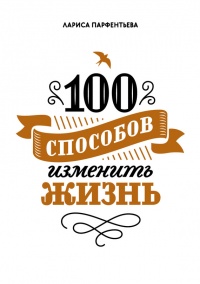Книга Учись как профи. 14 супернавыков, чтобы освоить все что хочешь - Дэн Уиллингэм
Шрифт:
Интервал:
Закладка:
Witherby A. E., Tauber S. K. The Influence of Judgments of Learning on Long-Term Learning and Short-Term Performance // Journal of Applied Research in Memory and Cognition. 2017. December. Vol. 6. № 4. Pp. 496–503.
Глава 8
Archer N. S., Pippert R. Don’t Change the Answer!: An Exposé of the Perennial Myth That the First Choices Are Always the Correct Ones // The Clearing House: A Journal of Educational Strategies, Issues and Ideas. 1962. Vol. 37. № 1. Pp. 39–41 // dx.doi.org/10.1080/00098655.1962.11476207.
Bourassa K. J., Ruiz J. M., Sbarra D. A. The Impact of Physical Proximity and Attachment Working Models on Cardiovascular Reactivity: Comparing Mental Activation and Romantic Partner Presence // Psychophysiology. 2019. May. Vol. 56. № 5. Pp. 1–12 // dx.doi.org/10.1111/psyp.13324.
Bramão I., Karlsson A., Johansson M. Mental Reinstatement of Encoding Context Improves Episodic Remembering // Cortex. 2017. September. Vol. 94. Pp. 15–26 // dx.doi.org/10.1016/j.cortex.2017.06.007.
Calma-Birling D., Gurung R. A. R. Does a Brief Mindfulness Intervention Impact Quiz Performance? // Psychology Learning & Teaching. 2017. November. Vol. 16. № 3. Pp. 323–335 // dx.doi.org/10.1177/1475725717712785.
Copeland D. A. Should Chemistry Students Change Answers on Multiple-Choice Tests? // Journal of Chemical Education. 1972. April. Vol. 49. № 4. P. 258 // dx.doi.org/10.1021/ed049p258.
DiBattista D., Sinnige-Egger J.-A., Fortuna G. The ‘None of the Above’ Option in Multiple-Choice Testing: An Experimental Study // Journal of Experimental Education. 2014. Vol. 82. № 2. Pp. 168–183 // dx.doi.org/10.1080/00220973.2013.795127.
Embse N. von der, Barterian J., Segool N. Test Anxiety Interventions for Children and Adolescents: A Systematic Review of Treatment Studies from 2000–2010 // Psychology in the Schools. 2013. January. Vol. 50. № 1. Pp. 57–71 // dx.doi.org/10.1002/PITS.21660.
Erdelyi M. H. The Recovery of Unconscious Memories: Hypermnesia and Reminiscence. Chicago: University of Chicago Press, 1996.
Kruger J., Wirtz D., Miller D. T. Counterfactual Thinking and the First Instinct Fallacy // Journal of Personality and Social Psychology. 2005. May. Vol. 88. № 5. Pp. 725–735.
Pichert J. W., Anderson R. C. Taking Different Perspectives on a Story // Journal of Educational Psychology. 1977. August. Vol. 69. № 4. Pp. 309–315 // experts.illinois.edu/en/publications/taking-different-perspectives-on-a-story.
Schwarz S. P., McMorris R. F., DeMers L. P. Reasons for Changing Answers: An Evaluation Using Personal Interviews // Journal of Educational Measurement. 1991. June. Vol. 28. № 2. Pp. 163–171 // dx.doi.org/10.1111/j.1745–3984.1991.tb00351.x.
Smith S. M., Handy J. D. Effects of Varied and Constant Environmental Contexts on Acquisition and Retention // Journal of Experimental Psychology: Learning, Memory, and Cognition. 2014. November. Vol. 40. № 6. Pp. 1582–1593.
Vispoel W. P. Reviewing and Changing Answers on Computerized Fixed-Item Vocabulary Tests // Educational and Psychological Measurement. 2000. June. Vol. 60. № 3. Pp. 371–384 // dx.doi.org/10.1177/00131640021970600.
Глава 9
Дуэк К. Гибкое сознание. Новый взгляд на психологию развития взрослых и детей. М.: Манн, Иванов и Фербер, 2018.
Black P., Wiliam D. Developing the Theory of Formative Assessment // Educational Assessment, Evaluation and Accountability. 2009. Vol. 21. № 5. Pp. 5–31 // dx.doi.org/10.1007/s11092-008-9068-5.
Kornell N., Metcalfe J. The Effects of Memory Retrieval, Errors and Feedback on Learning // Applying Science of Learning in Education: Infusing Psychological Science into the Curriculum, ed. by V. A. Benassi, C. E. Overson, C. M. Hakala. Washington, DC: Division 2, American Psychological Association, 2014. Pp. 225–251 // columbia.edu/cu/psychology/metcalfe/PDFs/Kornell2013.pdf.
Mayer R. E. Rote Versus Meaningful Learning // Theory into Practice. 2002. Autumn. Vol. 41. № 4. Pp. 226–232 // dx.doi.org/10.1207/s15430421tip4104_4.
Morrison F. J., Kim M. H., Connor C. M., Grammer J. K. The Causal Impact of Schooling on Children’s Development: Lessons for Developmental Science // Current Directions in Psychological Science. 2019. October. Vol. 28. № 5. Pp. 441–449 // dx.doi.org/10.1177/0963721419855661.
Roberts D. M. An Empirical Study on the Nature of Trick Test Questions // Journal of Educational Measurement. 1993. December. Vol. 30. № 4. Pp. 331–344 // dx.doi.org/10.1111/J.1745–3984.1993.TB00430.X.
Shute V. J. Focus on Formative Feedback // Review of Educational Research. 2008. March. Vol. 78. № 1. Pp. 153–189 // dx.doi.org/10.3102/0034654307313795.
Simons D. J., Boot W. R., Charness N. C. et al. Do ‘Brain Training’ Programs Work? // Psychological Science in the Public Interest. 2016. October. Vol. 17. № 3. Pp. 103–186.
Глава 10
Astill R. G., Van der Heijden K. B., Van IJzendoorn M. H., Van Someren E. J. W. Sleep, Cognition, and Behavioral Problems in School-Age Children: A Century of Research Meta-Analyzed // Psychological Bulletin. 2012. November. Vol. 138. № 6. Pp. 1109–1138 // dx.doi.org/10.1037/a0028204.
Buehler R., Griffin D., Ross M. Exploring the ‘Planning Fallacy’: Why People Underestimate Their Task Completion Times // Journal of Personality and Social Psychology. 1994. September. Vol. 67. № 3. Pp. 366–381 // dx.doi.org/10.1037/0022-3514.67.3.366.
Cain N., Gradisar M. Electronic Media Use and Sleep in School-Aged Children and Adolescents: A Review // Sleep Medicine. 2010. September. Vol. 11. № 8. Pp. 735–742 // dx.doi.org/10.1016/j.sleep.2010.02.006.
Crovitz H. F., Daniel W. F. Measurements of Everyday Memory: Toward the Prevention of Forgetting // Bulletin of the Psychonomic Society. 1984. November. Vol. 22. № 5. Pp. 413–414 // dx.doi.org/10.3758/BF03333861.
Gollwitzer P. M., Kentaro F., Oettingen G. Planning and the Implementation of Goals // Handbook of Self-Regulation: Research, Theory, and Applications, ed. by R. F. Baumeister, K. D. Vohs. New York: Guilford, 2004. Pp. 211–228.
Gomez Fonseca A., Genzel L. Sleep and Academic Performance: Considering Amount, Quality and Timing // Current Opinion in Behavioral Sciences. 2020. June. Vol. 33. Pp. 65–71 // dx.doi.org/10.1016/j.cobeha.2019.12.008.
Hartwig M. K., Dunlosky J. Study Strategies of College Students: Are Self-Testing and Scheduling Related to Achievement? // Psychonomic Bulletin & Review. 2012. February. Vol. 19. № 1. Pp. 126–134 // dx.doi.org/10.3758/s13423-011-0181-y.
Kornell N., Bjork R. A. The Promise and Perils of Self-Regulated Study // Psychonomic Bulletin & Review. 2007. April. Vol. 14. № 2. Pp. 219–224 // dx.doi.org/10.3758/bf03194055.
Krause A. J., Simon E. B., Mander B. A. et al. The Sleep-Deprived Human Brain // Nature Reviews Neuroscience. 2017. July. Vol. 18. № 7. Pp. 404–418 // dx.doi.org/10.1038/nrn.2017.55.
Kross E., Bruehlman-Senecal E., Park J. et al. Self-Talk as a Regulatory Mechanism: How You Do It Matters // Journal of Personality and Social Psychology. 2014. February. Vol. 106. № 2. Pp. 304–324 // dx.doi.org/10.1037/a0035173.
Shirtcliff E. A., Allison A. L., Armstrong J. M. et al. Longitudinal Stability and Developmental Properties of Salivary Cortisol Levels and Circadian Rhythms from Childhood to Adolescence // Developmental Psychobiology. 2012. July. Vol. 54. № 5. Pp. 493–502 // dx.doi.org/10.1002/dev.20607.
Глава 11
Ariely D., Wertenbroch K. Procrastination, Deadlines, and

























